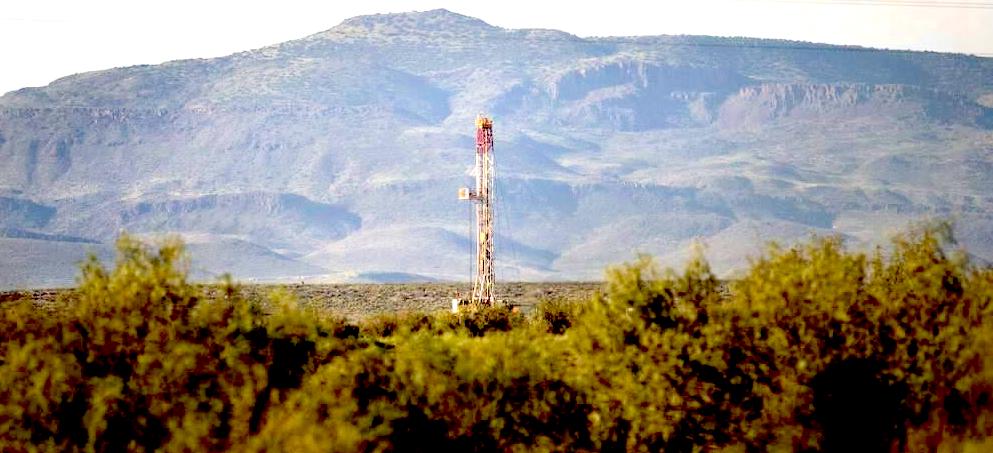Tomlinson: A West Texas road map for no-drama, sustainable energy development

Almost every new energy project — whether an oil well, wind farm, solar array or transmission line — seems to trigger an often-costly fight.
Neighbors worry about groundwater, don’t want their view ruined or warn against threats to plants and animals. Residents pack community forums, activists file lawsuits and projects get delayed, usually with disappointing results for everyone.
A foundation left behind by the man who perfected hydraulic fracturing of oil and gas wells has been developing a different system that promotes cooperation rather than confrontation.
The Cynthia and George Mitchell Foundation on Wednesday will reveal a methodology for bringing together environmentalists, developers, residents and academics to devise strategies to protect West Texas while allowing new fossil fuel and renewable energy projects.
The Respect Big Bend Coalition believes predevelopment conversations and detailed mapping can balance community interests, property rights and economic development. The concept is often called “development by design” rather than the typical “development by surprise” approach.
“In Texas, there is really no opportunity for citizens to provide comments or weigh-in on siting decisions. Those are made by energy companies and private landowners or mineral owners,” said Melinda Taylor, executive director of the Center for Energy, Law and Business at the University of Texas at Austin. “This approach is based on what the values are that the community members themselves articulate, married with a very strong basis in science.”
No form of energy is without environmental impact. Drilling oil and gas wells can damage the water table and emit greenhouse gases. Wind turbines kill birds and bats, while solar fields can cover hundreds of acres of land, making it unsuitable for plants and animals.
Then there are social factors. I once took a French friend to Big Bend, where she was enchanted because she could look for miles in almost any direction and see no sign of human life. Old ranching families love their land and water. People move to West Texas to get away from human settlements. Energy projects of all kinds intrude.
Some residents of the Big Bend region became very concerned in 2016 when Apache Corp. discovered oil and gas reserves in an area centered on Reeves County. They worried about damage to the San Solomon Springs in Balmorhea State Park, among other threats.
Apache agreed to work with the Cynthia and George Mitchell Foundation to responsibly develop the “Alpine High” field. Though Apache suspended work in 2019 because of low natural gas prices, the foundation kept working on community cooperation.
Opinion polling in the 18-county region mirrors the rest of the country. Residents understand the importance of energy to national security and energy development to the economy. But they do not want to sacrifice their environment or way of life. They want to be involved in the planning.
In the Big Bend, dark skies are essential to the McDonald Observatory. Vistas are important to tourists and landowners. Migratory pathways are important to animals. Water and air protection are important to all living things. Oil and gas reserves, solar potential and wind zones are critical to meet energy demands.
The Respect Big Bend Coalition organized dozens of meetings and brought together residents, environmentalists, elected officials and energy executives in a Stakeholder Advisory Group. The group mapped out what areas should be preserved to maintain the local culture and natural environment and where energy projects could go without protest.
Michael Young at the state Bureau of Economic Geology based at UT-Austin gathered scientific experts to identify the different resources and the likelihood a company would develop them. The team provided a road map of where energy projects may go in the future, particularly wind and solar rather than oil and gas.
“We see West Texas as this microcosm of the transition,” Young said. “We could actually overlay where the land is really valuable, and here’s where we think energy development’s going to be. And this gives a point of discussion for people.”
In reporting on energy, I have seen factions demonize each other and resort to litigation or regulator manipulation. The Cynthia and George Mitchell Foundation and the Respect Big Bend Coalition, themselves an odd amalgam of energy money and environmental activism, are trying to show us a better, longer-lasting way to ensure we have the energy we need without ruining our communities.
As with all things in life, we can get more accomplished when we spend less time shouting and more time listening.
Chris Tomlinson writes commentary about business, economics, and politics for the Houston Chronicle.

NEWS
Hide Full Index
Show Full Index
View All News